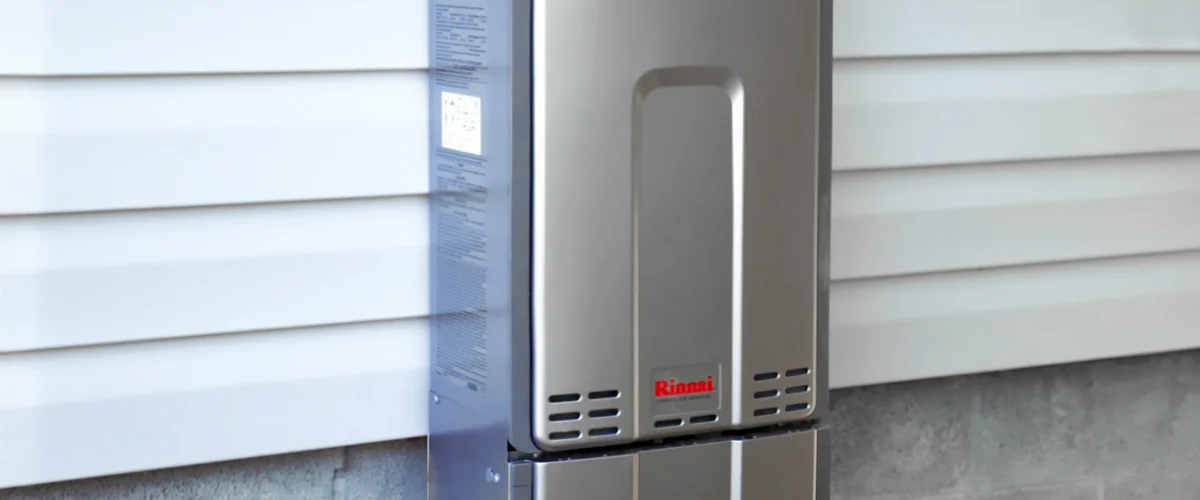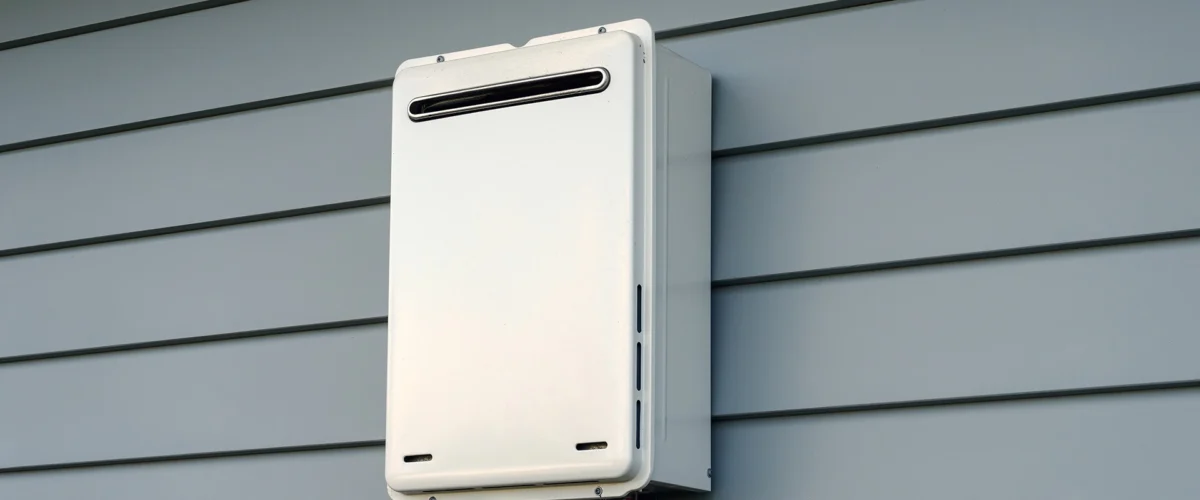Understanding Tankless Water Heaters: Pros, Cons, and Installation Tips
September 10, 2024
As energy efficiency and eco-friendly appliances gain popularity, many homeowners are considering switching from traditional water heaters to tankless water heaters. These compact units promise several benefits, such as unlimited hot water and reduced energy costs, making them a top choice for homes and businesses alike. However, before making the switch, it’s essential to understand the pros, cons, and key considerations for installation. In this article, we’ll break down everything you need to know about tankless water heaters, especially for South Florida homeowners looking for expert water heater installation, replacement, and maintenance services.
The Pros of Tankless Water Heaters
One of the main selling points of tankless water heaters is their ability to provide hot water on demand. Unlike traditional water heaters that store hot water in a tank and gradually lose heat, tankless units heat water as needed. This means you’ll never run out of hot water, whether you’re taking back-to-back showers or running multiple appliances simultaneously. Especially in larger households, this continuous hot water supply can be a significant advantage.
Another major benefit of tankless water heaters is their energy efficiency. Since these systems only heat water when it’s required, they typically use less energy compared to traditional water heaters, which constantly expend energy keeping a large tank of water heated. Over time, this energy savings can lead to lower utility bills, making tankless heaters an attractive option for eco-conscious homeowners looking to reduce their carbon footprint. For South Florida water heaters, this efficiency can be especially helpful during the warmer months when hot water demands fluctuate.
Additionally, tankless water heaters are compact and space-saving. Without the need for a bulky tank, these systems can be installed in smaller spaces, making them ideal for homes with limited storage. This sleek design also allows for more flexible installation locations, such as closets or crawl spaces, freeing up room in basements or utility closets for other uses.
The Cons of Tankless Water Heaters
While tankless water heaters offer numerous benefits, they also have some drawbacks to consider. One of the primary disadvantages is the upfront cost. Tankless units tend to be more expensive than traditional water heaters, and the installation process can add to the overall expense, particularly if your home’s current plumbing system needs to be modified. The investment can be worthwhile in the long run due to energy savings, but homeowners need to be prepared for the higher initial costs.
Another challenge with tankless water heaters is that they may struggle to provide hot water to multiple outlets simultaneously. For example, if you’re taking a shower while the dishwasher and washing machine are running, the tankless unit may have difficulty keeping up with the demand. This can result in inconsistent water temperatures, which might not be ideal for larger households with high hot water usage.
Maintenance is another factor to keep in mind. While tankless systems generally require less maintenance than traditional water heaters, they still need periodic descaling, especially in areas with hard water. South Florida, known for its hard water, can cause mineral buildup in tankless water heaters over time, which affects efficiency. Regular water heater maintenance is essential to prevent damage and ensure the unit operates at peak performance. If you’re not comfortable performing this yourself, it’s always best to consult water heater experts.

Installation Tips for Tankless Water Heaters
Installing a tankless water heater isn’t as simple as swapping out your old unit for a new one. Proper installation is critical to ensure the system works efficiently and safely. The first step in the installation process is determining the right size unit for your home. Tankless water heaters are available in different sizes, and selecting the correct one depends on your household’s hot water demands. A professional water heater installation expert can help you assess your needs and recommend the right unit.
Another key factor to consider is venting. Unlike traditional water heaters, tankless units require special venting to prevent dangerous fumes from building up in your home. Depending on your setup, you may need to install new venting systems, which adds to the complexity of the installation. Electric tankless heaters may not require venting, but you’ll need to ensure your home’s electrical system can handle the increased load. Gas-powered tankless heaters, on the other hand, will require proper ventilation, especially if installed indoors.
Location is also crucial when installing a tankless water heater. As mentioned earlier, these systems are compact, giving you flexibility in where they can be installed. However, for optimal performance and accessibility, you’ll want to choose a spot that is easy to reach for future maintenance. Additionally, ensure that the unit is located near water supply lines and electrical or gas connections, depending on the type of unit you choose.
Maintaining a Tankless Water Heater
One of the key advantages of a tankless water heater is its longevity and minimal maintenance requirements. However, like any other appliance, proper upkeep is necessary to extend the system’s lifespan. Regular water heater maintenance is crucial to prevent scale buildup, especially in regions with hard water like South Florida. Hard water can lead to mineral deposits inside the heater, reducing efficiency and even causing damage over time.
A descaling procedure should be performed at least once a year, or more often if your area has particularly hard water. This process involves flushing the system with a descaling solution to remove any mineral deposits that have accumulated. For South Florida homeowners, scheduling routine maintenance with water heater experts can ensure that your tankless water heater remains in top condition and continues to provide reliable hot water for years to come.
In addition to descaling, you’ll want to check the unit’s filters and clean them regularly to avoid blockages. Filters trap dirt and debris before they enter the system, preventing damage to the heating elements. Keeping these filters clean will help maintain the efficiency of your water heater and prevent costly repairs down the line.

When to Replace Your Water Heater
Although tankless water heaters are known for their durability, they won’t last forever. Most units have a lifespan of 15 to 20 years, depending on how well they are maintained. If your system is nearing the end of its life or you’re experiencing frequent issues, it may be time to consider water heater replacement. Signs that it’s time for a replacement include inconsistent water temperatures, unusual noises, and increased energy bills.
Before opting for a replacement, it’s important to consult with a water heater installation expert who can help determine whether repairs are possible or if a new unit is needed. For South Florida homeowners, choosing the right time to replace your water heater is crucial to avoid unexpected downtime and ensure you always have access to hot water when you need it.
Conclusion
Tankless water heaters offer numerous benefits, from energy efficiency and space savings to endless hot water. However, they come with their own set of challenges, including higher upfront costs and the need for regular maintenance. For homeowners in South Florida, where water heater performance can be affected by the region’s hard water, regular maintenance is particularly important to ensure long-lasting efficiency. Whether you’re considering water heater installation or replacement, it’s essential to weigh the pros and cons to determine if a tankless unit is the right choice for your home.
If your tankless water heater is in need of serious cleaning or flushing services, it’s best to call in the professionals. Pompa Plumbing offers expert water heater maintenance and repair services, ensuring your system is running smoothly and efficiently. With the right care and regular descaling, your tankless water heater can provide reliable hot water for years to come. Don’t hesitate to reach out to Pompa Plumbing for all your water heater needs, from installations to routine maintenance and replacements.


